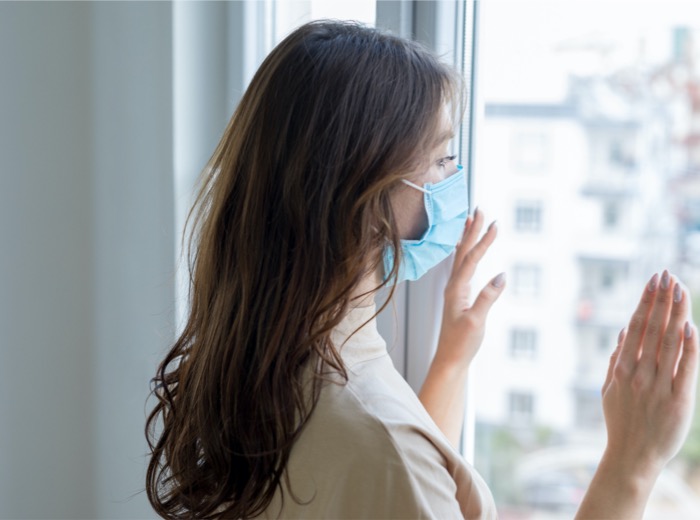Coronavirus update 18 November 2020 – SA enters ‘circuit-breaker’ restrictions

18 November 2020

In the last week, South Australia has experienced a resurgence of COVID-19 cases. In response to the outbreak, on 18 November 2020, the South Australian Government announced it would impose COVID-19 restrictions to attempt to avoid a ‘second wave’ leading into the Christmas and Holiday Period and prevent further spread.
What are the restrictions?
From 12:01 AM on Thursday 19 November 2020, for six days, a ‘circuit-breaker’ lockdown will be imposed on South Australia. People must remain at home for this period.
Whilst the list is not yet complete, the following industries are permitted to remain operational to maintain critical services only:
- Critical infrastructure including power, telecommunications, and water;
- Supermarkets for essential food;
- Bottle shops;
- Medical supplies and medical services;
- Public transport;
- Airport and essential freight;
- Petrol stations;
- Post offices and banking institutions;
- Childcare and schools for essential services workers only;
- Veterinary;
- Essential agriculture services;
- Factories remain open for essential machinery upkeep and production of essential products only; and
- Mining and smelting for continuity and to prevent damage.
People will only be allowed to leave their homes in limited circumstances which include:
- To go to work as an emergency services worker or to work providing essential services;
- For agricultural work;
- To receive medical care including seeking COVID-19 testing;
- To obtain medical supplies;
- One person from the household once a day to attend supermarkets to obtain essential supplies;
- Organised end of life visits; and
- In an emergency situation.
What businesses must close?
A wide range of businesses must close under the ‘circuit-breaker restrictions’ including:
- Takeaway food services;
- Shops (excluding essential food services);
- Universities and tertiary education facilities;
- Pubs, restaurants, cafés, and food courts
- Elective surgery, except cancer;
- Open inspections and auctions;
- Fly-in-fly-out workers;
- Aged care and disability facilities will go into lockdown;
- Construction industry;
- Holiday homes and other holiday accommodation and no further bookings;
- Wedding and funerals cancelled and banned; and
- Outdoor sport, fitness, exercise.
Other restrictions
South Australians must now wear masks at all times when they leave their homes. People are also not permitted to leave their homes to exercise. Regional travel is also banned.
What does this mean for workplaces?
Where your business has been identified as a business which must close for the ‘circuit-breaker’ period, that is, you are required to completely shut for the six-day shutdown period, then in our view, you will be able to stand down your employees where they are unable to work from home.
How do you enact a stand down?
An employer can stand down an employee without pay where an employee cannot usefully be employed due to, but not limited to, a stoppage of work for any cause which the employer cannot reasonably be held responsible. As businesses have been forced to close due to a government directive, implementing a stand down under section 524 of the Fair Work Act (Cth) 2009 (FW Act) is lawful for employers provided the employee is not employed under an enterprise agreement or employment contract which provides for different stand down rights and obligations.
Whilst many businesses will be eligible for JobKeeper and therefore entitled to initiate a JobKeeper stand down direction, when implementing such a direction there is a requirement that the employer consults with employees and provide them with three days’ notice of the direction taking effect. Since businesses are to close from 12:01 AM on Thursday 19 November 2020, employers will be unable to strictly comply with the JobKeeper notification requirement.
Where an s.524 stand down is implemented, employers should:
- seek specific advice in all circumstances to ensure that the risks with such an approach are understood;
- engage with impacted employees as soon as possible and provide employees with a reasonable opportunity to present ideas or proposals which may avoid the stand down;
- confirm the stand down in writing;
- maintain consistent contact with employees during the stand down period and provide updates and information which will assist with their ongoing understanding of the matter; and
- the continuation, or cancellation, of a stand down should be confirmed in writing.
What does this mean for employees and their working arrangements?
Where employees are able to perform their duties from home, then they can continue working and implementing a stand down is not necessary. Where this is the case, businesses should consider an employee’s ability to work from home safely.
How do my employees get paid if they have been stood down?
Option 1: a business that is JobKeeper qualified
If your business has qualified for JobKeeper payments, then you’ll continue to pay your eligible stood down employees the minimum JobKeeper subsidy.
Option 2: a business that is not JobKeeper qualified or has employees who are ineligible to receive payment
If your business does not qualify for the JobKeeper wage subsidy or you have employees who don’t meet the eligibility test, then you’re not required to make payment to such employees for the duration of the stand down. You can however allow employees to access any accrued annual leave or long service leave during this period.
Employees in this situation should also be encouraged to contact Services Australia to identify support available to them.
Notes
It should be noted that the South Australian Government is still in the process of confirming further details, which will be available at https://www.covid-19.sa.gov.au/recovery. Alternatively, you can contact the SA COVID-19 Information Line on 1800 253 787 during business hours.
If you need assistance in managing your employees during this period, please contact the team at enableHR.




